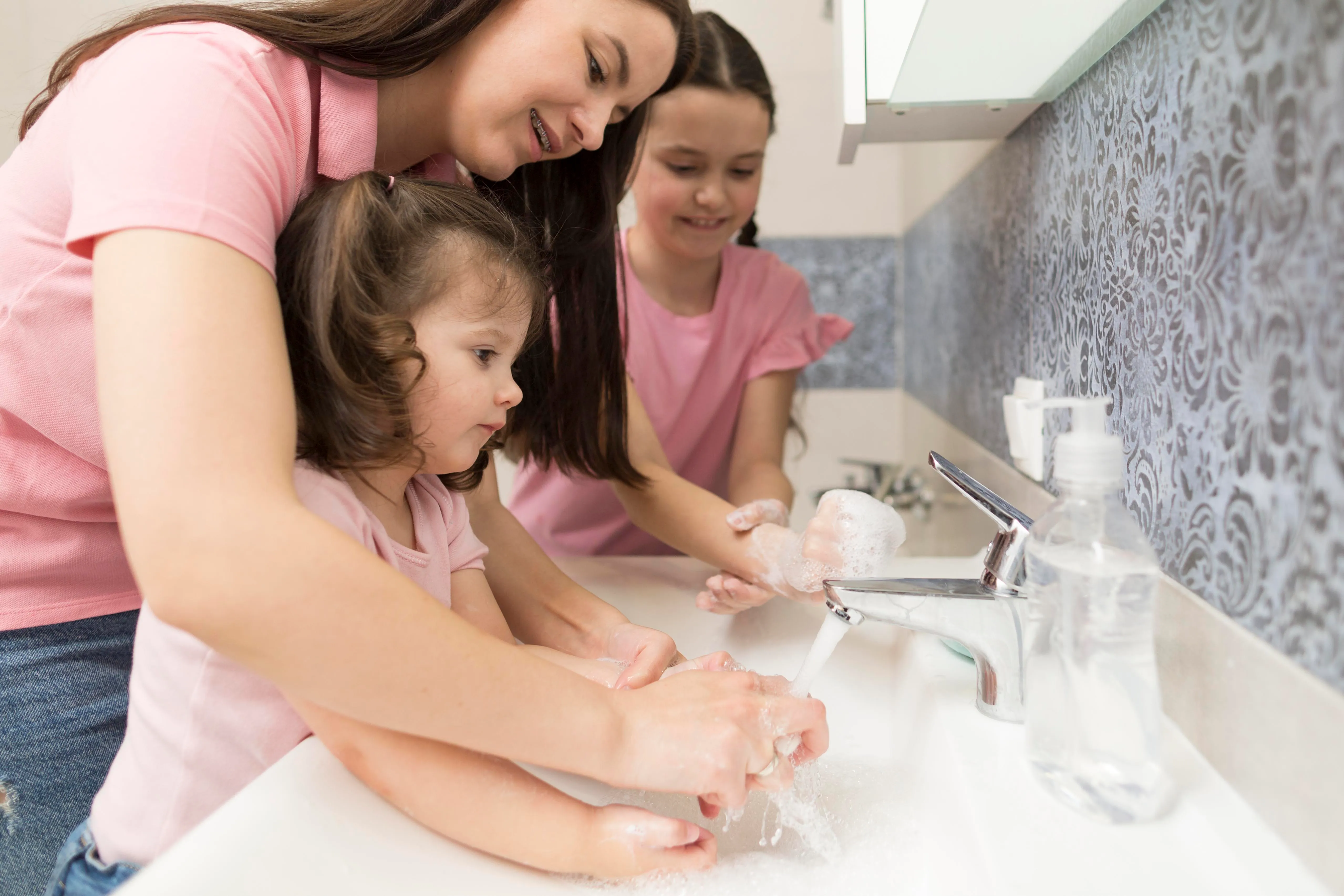
Soap is a staple in every household, whether it's a liquid body wash or a bar of soap sitting on the bathroom sink. Many families don’t think twice before sharing it. After all, it’s ‘just soap,’ right? Surprisingly, experts warn that this common practice could be more problematic than it appears. In an exclusive interview with the editorial team, our expert, Dr Bhumesh Tyagi, Consultant, General Medicine and Physician, Shardacare, Health City, Noida, shares insights you would not to miss if you care about you and your family’s health. Read ahead to know!
Table of Content:-
Bar Soap vs. Liquid Soap: What's the Real Concern?
The form of soap that is being shared has a significant role to play. Liquid soap tends to be dispensed in a cleaner fashion, by using a pump, with less chance of contamination. Bar soap, however, has the potential to carry bacteria, fungi, and viruses on the surface, particularly in humid settings.
As per Dr Tyagi, "Bar soaps can turn into a breeding ground for microbes if more than one person with varying habits of cleanliness use them. Although soap does eliminate germs, the surface may retain microorganisms that can be transferred from one person to another."
When Does Sharing Become a Health Hazard?
Although the risk may be minor for healthy people, it can become dangerous under the following conditions:
Also Read: End-Stage Parkinson’s Disease: A Guide To Symptoms, Challenges, And Care Options
1. Cuts or open sores
If a family member has open sores, cracked skin, or conditions such as eczema, sharing soap can transmit infections.
2. Fungal infections
Fungal problems such as athlete's foot, ringworm, or other infections can be readily transmitted through a shared bar of soap.
3. Compromised immune systems
Infants, the elderly, or immunocompromised individuals have a higher risk of infection.
What About Liquid Soap Sharing?
Liquid soap performs better for hygiene, provided it is dispensed from a pump. But if the soap bottle is filled incorrectly or handled with dirty hands, it becomes contaminated as well. Therefore, washing hands first before refilling and cleaning the pump periodically should be a key practice.
Expert-Approved Best Practices To Follow
Here's what professionals recommend to keep your family safe and clean:
- Individual bars: Provide each member of the household with their own labelled soap bar.
- Liquid soap in public areas: Particularly for hand washing in shared bathrooms or kitchens.
- Allow soap to dry between applications: Utilise a soap dish with drainage to prevent soggy soap that can harbour bacteria.
- Don't use someone else's soap on sensitive areas: Skin around genital areas is more sensitive and can cause irritation or infection.
- Disinfect shared soap dispensers: Particularly if shared by guests or several family members.
Bottomline
Yes, soap is intended to clean, but that doesn't imply it's impervious to germ exposure. Sharing liquid soap is okay most of the time, but sharing a piece of soap within a family can be fraught with tiny but real health consequences, particularly in people with skin conditions or compromised immunity. Therefore, if you'd rather play it safe, make personal hygiene purely personal, and provide each person with his/ her own soap.
Also watch this video
How we keep this article up to date:
We work with experts and keep a close eye on the latest in health and wellness. Whenever there is a new research or helpful information, we update our articles with accurate and useful advice.
Current Version